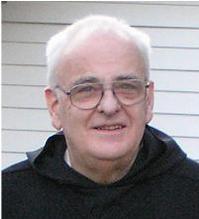The distinctive love by which Christians are recognized is not merely the result of an affectionate nature or the acquisition of skills or a suitably nurturing social situation. It is a gift of God which both fulfills and simultaneously surpasses our nature’s desire to be loved and to love.
Christian love (or agape) is the infusion of the divine lovableness and love into the human spirit, repairing the damage which love’s absence has wrought and lifting up the human to the level of the divine. Simultaneously, it is an upgrading of our perception so that we are able to see just how lovable our neighbor is.
This gift enable us to see through the objective failings of other persons to reach the inner core of their being, where everything is beautiful. This not a human quality or skill but a gift of God that is both sign and guarantee that we are already living on a supernatural plane.
Michael Casey, OCSO
Seventy-Four Tools For Good Living

